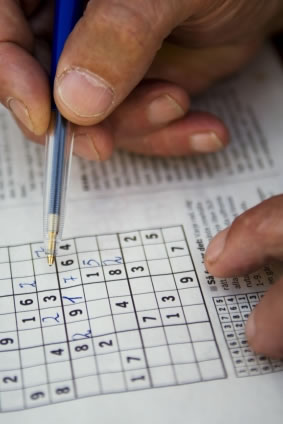Published: February 3, 2012
 Today’s Guardian reports that tweeting or checking emails may be harder to resist than cigarettes and alcohol, according to researchers who tried to measure how well people could resist their desires.
Today’s Guardian reports that tweeting or checking emails may be harder to resist than cigarettes and alcohol, according to researchers who tried to measure how well people could resist their desires.
They even claim that while sleep and sex may be stronger urges, people are more likely to give in to longings or cravings to use social and other media.They even claim that while sleep and sex may be stronger urges, people are more likely to give in to longings or cravings to use social and other media.
A team headed by Wilhelm Hofmann of Chicago University’s Booth Business School say their experiment, using BlackBerrys, to gauge the willpower of 205 people aged between 18 and 85 in and around the German city of Würtzburg is the first to monitor such responses “in the wild” outside a laboratory.
The results will soon be published in the journal Psychological Science. Read the full story in The Guardian
Published: February 3, 2012

Image: StockXpert
lacebos reduce pain by creating an expectation of relief. Distraction—say, doing a puzzle—relieves it by keeping the brain busy. But do they use the same brain processes? Neuromaging suggests they do. When applying a placebo, scientists see activity in the dorsolateral prefrontal cortex. That’s the part of the brain that controls high-level cognitive functions like working memory and attention—which is what you use to do that distracting puzzle.
Now a new study challenges the theory that the placebo effect is a high-level cognitive function. The authors—Jason T. Buhle, Bradford L. Stevens, and Jonathan J. Friedman of Columbia University and Tor D. Wager of the University of Colorado Boulder—reduced pain in two ways – either by giving them a placebo, or a difficult memory task. lacebo. But when they put the two together, “the level of pain reduction that people experienced added up. There was no interference between them,” says Buhle. “That suggests they rely on separate mechanisms.” The findings, published in Psychological Science, a journal of the Association for Psychological Science, could help clinicians maximize pain relief without drugs. [continue reading…]
Published: February 1, 2012
 In theory, the social networking website Facebook could be great for people with low self-esteem. Sharing is important for improving friendships. But in practice, people with low self-esteem seem to behave counterproductively, bombarding their friends with negative tidbits about their lives and making themselves less likeable, according to a new study which will be published in Psychological Science, a journal of the Association for Psychological Science.
In theory, the social networking website Facebook could be great for people with low self-esteem. Sharing is important for improving friendships. But in practice, people with low self-esteem seem to behave counterproductively, bombarding their friends with negative tidbits about their lives and making themselves less likeable, according to a new study which will be published in Psychological Science, a journal of the Association for Psychological Science.
“We had this idea that Facebook could be a really fantastic place for people to strengthen their relationships,” says Amanda Forest, a graduate student at the University of Waterloo. She cowrote the new study with her advisor, Joanne Wood. The two are generally interested in self-esteem, and how self-esteem affects the kinds of emotions people express. People with low self-esteem are often uncomfortable sharing face-to-face, but Facebook makes it possible to share remotely.
In one study, Forest and Wood asked students how they feel about Facebook. People with low self-esteem were more likely to think that Facebook provided an opportunity to connect with other people, and to perceive it as a safe place that reduces the risk of awkward social situations. [continue reading…]
Published: February 1, 2012
 A woman’s memory of an experience is less likely to be accurate than a man’s if it was unpleasant and emotionally provocative, according to research undertaken by University of Montreal researchers at Louis-H Lafontaine Hospital. “Very few studies have looked at how ‘valence’ and ‘arousal’ affect memories independently of each other, that is to say, how attractive or repulsive we find an experience and how emotionally provocative it is,” said corresponding author Dr. Marc Lavoie, of the university’s Department of Psychiatry and the hospital’s Fernand-Seguin Research Center. “Our test relied on photos – we found firstly that highly arousing pictures blur women’s capacity to determine whether they’ve seen it before, and secondly that women have a clearer memory of attractive experiences than men. Arousal has an enhancing effect on the memory of men however, as does ‘low valence’ or unpleasantness.” [continue reading…]
A woman’s memory of an experience is less likely to be accurate than a man’s if it was unpleasant and emotionally provocative, according to research undertaken by University of Montreal researchers at Louis-H Lafontaine Hospital. “Very few studies have looked at how ‘valence’ and ‘arousal’ affect memories independently of each other, that is to say, how attractive or repulsive we find an experience and how emotionally provocative it is,” said corresponding author Dr. Marc Lavoie, of the university’s Department of Psychiatry and the hospital’s Fernand-Seguin Research Center. “Our test relied on photos – we found firstly that highly arousing pictures blur women’s capacity to determine whether they’ve seen it before, and secondly that women have a clearer memory of attractive experiences than men. Arousal has an enhancing effect on the memory of men however, as does ‘low valence’ or unpleasantness.” [continue reading…]
 Today’s Guardian reports that tweeting or checking emails may be harder to resist than cigarettes and alcohol, according to researchers who tried to measure how well people could resist their desires.
Today’s Guardian reports that tweeting or checking emails may be harder to resist than cigarettes and alcohol, according to researchers who tried to measure how well people could resist their desires.


